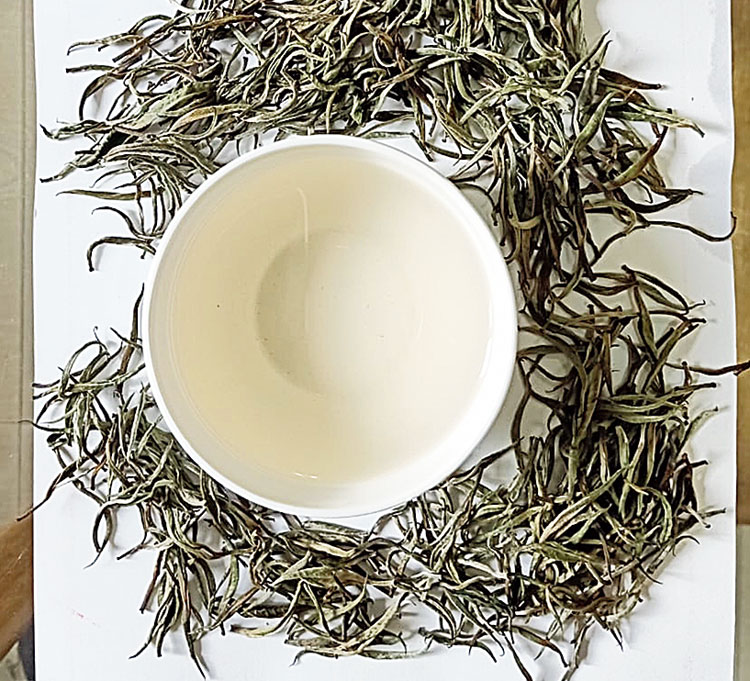Fatikcherra, a 101-year-old tea estate of West Tripura district, has produced white tea for the first time to give an impetus to the state’s tea industry.
White tea is known to be one of the most delicate tea varieties as it is minimally processed.
It is harvested before a plant’s leaves unfurl fully with the young buds still covered by fine white hairs, hence, the name white tea.
The tea estate was set up in Tripura in 1918, two years after the Hiracherra tea estate in Unakoti district which opened in 1916.
Fatikcherra tea estate manager Joydeep Ganguly, who joined as a tea planter in Tripura in 2016, told The Telegraph on Wednesday that he tried to plant some white tea to develop the industry in the state.
“I am from Darjeeling, whose tea already has a Geographical Indication (GI) tag. As a tea lover and a planter from Darjeeling, I had come across various types of tea productions, including green tea, oolong, white tea and gyukoru, To develop the tea industry in the state, I tried to experiment by planting different types of tea to see how things turn,” he said.
Ganguly said he produced 6.8kg white tea and sold it at Rs 5,500 per kilogram, which is unexpectedly high by the standards of Tripura tea. The “leaf grade”, “broken” and “fannings” categories of Tripura tea sell between Rs 300 to Rs 700 per kg.
Fatikcherra tea estate produces 1.5 lakh kg tea annually and sells it through contracts at Siliguri in Bengal. In 2004, the tea estate got the organic tea producer certificate. Now, it also produces green tea.
Other tea estates like Narendrapur and Mekhlipara in West Tripura sold their produce under Goodwynn brand but failed to grow because of lack of marketing.
Tripura Tea Development Corporation (TTDC) chairperson Santosh Saha said the erstwhile Left Front government did not take any step to develop the tea industry and damaged its prospects by turning most of the gardens “sick”.
However, shortly after the BJP-IPFT formed the government in the state, they are making efforts to revive the estates.
Tea Board of India assistant director Diganta Barman said he is aggressively trying to market tea produced in Tripura.
He recently got a logo approved for Tripura tea and convinced tribal villagers to grow wild tea near the Tripura-Mizoram boundary.
“We are trying to market Tripura tea along with Assam, Darjeeling and other brands. We have started work on developing and marketing Tripura tea, are taking initiatives like designing a logo, are convincing planters to turn to organic cultivation and are encouraging others to try different tea varieties,” Barman said.
Assam and a few other northeastern states, including Tripura, have produced white tea in a small quantity till now.
Tripura at present has 58 operational tea gardens, of which 42 are individually owned, three are run by the TTDC and 13 are operated under co-operative societies.
Around 3,000 small tea growers also run their tea gardens with government support.
Altogether 6,885-hectares are under tea cultivation in the state.
According to estimates, Tripura produced 3.58 crore kg green tea leaf annually till last year.
This bulk ends up as 88 lakh kg “made tea” processed in different plants.










